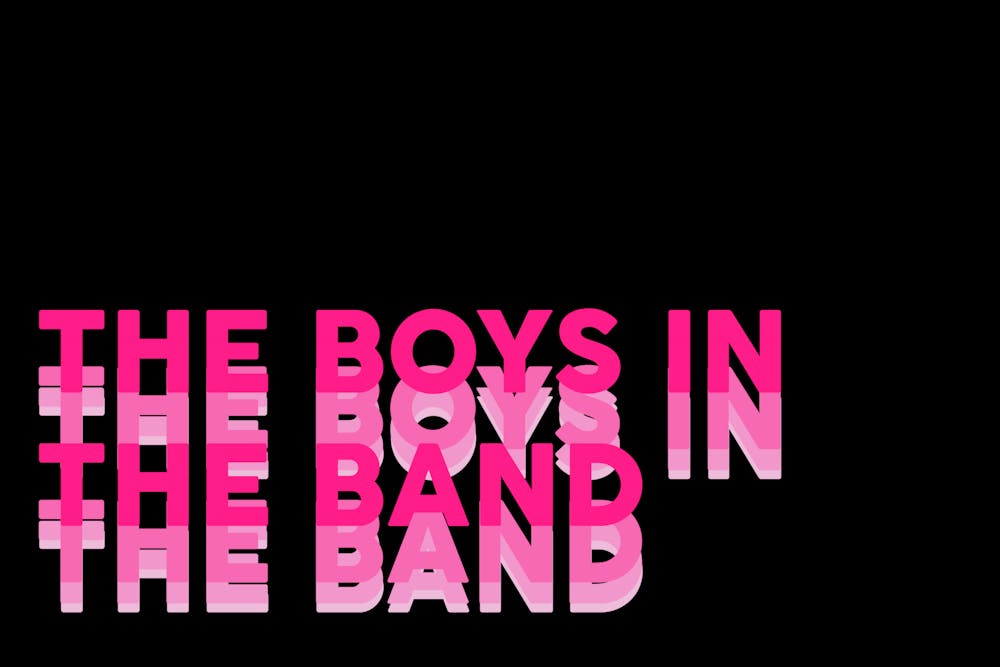It feels like Jim Parsons is everywhere and I, for one, am terrified. Maybe it’s my inability to separate him from Sheldon Cooper, or the fact that he plays hateable characters a bit too well. Yet, I sat down to watch the Netflix revival of The Boys in the Band, yet another collaboration between Ryan Murphy and Jim Parsons.
Matt Crowley’s 1968 play was initially revived on Broadway to commemorate its 50th anniversary. Members of the Broadway cast, including faces such as Jim Parsons, Zachary Quinto, and Matt Bomer, all reprise their roles for the Netflix revival, which boasts a sterling cast of openly gay actors with Joe Mantello also returning to direct.
Set in the year before the Stonewall riots, the play revolves around six friends coming together to throw a birthday party for their dear but fashionably late friend, Harold (Zachary Quinto). We watch this disaster of a birthday party take place in the home of Michael (Jim Parsons), a recovering straight man and occasional mean drunk.
The party sets off without a hitch as everyone (but Harold) arrives. There’s Donald (Matt Bomer), the party’s first guest whose sole purpose is to sadly smolder into the camera at times and comfort Michael when the moment calls for it; Emory (Robin de Jesús), the effeminate and flamboyant friend; Larry (Andrew Rannells), who has trouble with monogamy, much to chagrin of his straight–passing partner, Hank (Tuc Watkins); and Bernard (Michael Benjamin Washington). It’s clear that the play and revival both had no idea what to do with Bernard, except to have him emphasize the guise of representation in the film.
Before Harold arrives, the party is interrupted by two surprise guests. The first is the hunky, but comically dumb Cowboy (Charlie Carver) and more interestingly, the second is Alan (Brian Hutchison), Michael’s very heterosexual roommate from college. Alan calls Michael earlier that day, begging to hang out. But, before Michael has a chance to explain that he already has plans with people Alan wouldn’t really have a great time with—the gays!—Alan breaks down over the phone. Despite agreeing to meet at a later date, Alan crashes Michael's party and immediately finds himself overwhelmed by the party’s guests and his own homophobia.
Why exactly Alan breaks down over the phone is never revealed. However, it's hinted that despite his homophobia—he lashes out and punches Emory for being too flamboyant and cheeky for him—and general fidgetiness throughout the play, he is living a lie. We watch Alan unable to come to terms with what's implied to be his own repressed homosexuality, yet he indulges in the party by refusing to leave, perhaps entertaining some idea of a life where he can be himself.
Just as the chaos begins to really take off, Harold struts in late as per usual. Quinto steals the scene and fills the room with so much energy. He delivers every line in a perfectly acerbic, acidic manner and is the only one who can challenge Michael—both in his tendency to bully others and his inability to admit the truth about his sexuality to his college roommate.
This movie is very dialogue driven, hence the constant monologues, which at times felt more like a recitation of lines than natural dialogue. The actors do most of the heavy–lifting. This often works in Zachary Quinto, Robin de Jesús, or Michael Benjamin Washington’s favor, but for others such as Jim Parsons, it fails flat. Parsons’ performance is very one–note, lacking in the scathing delivery or sadistic mannerisms required of the character. Matt Bomer also gives a very understated performance, and it left me wanting just a bit more from his character.
All in all, the play and the movie both explore the self–hatred and internalized homophobia of gay men in a period that precedes the AIDS outbreak and the Stonewall riots. At times, the actor's styles don't mesh well together, and movie feels very outdated. We probably didn’t need another remake—the 1970 movie does a much better job at balancing the characters and chaos—but I guess these are just the times we live in.
Grade: C

